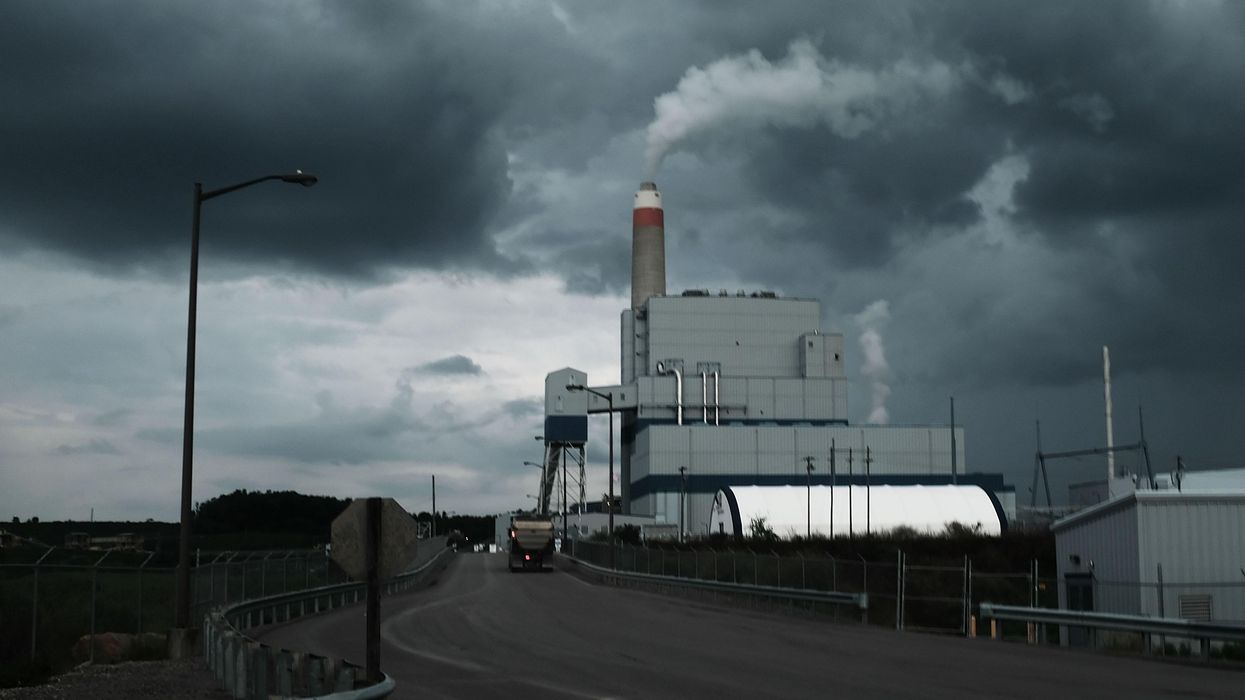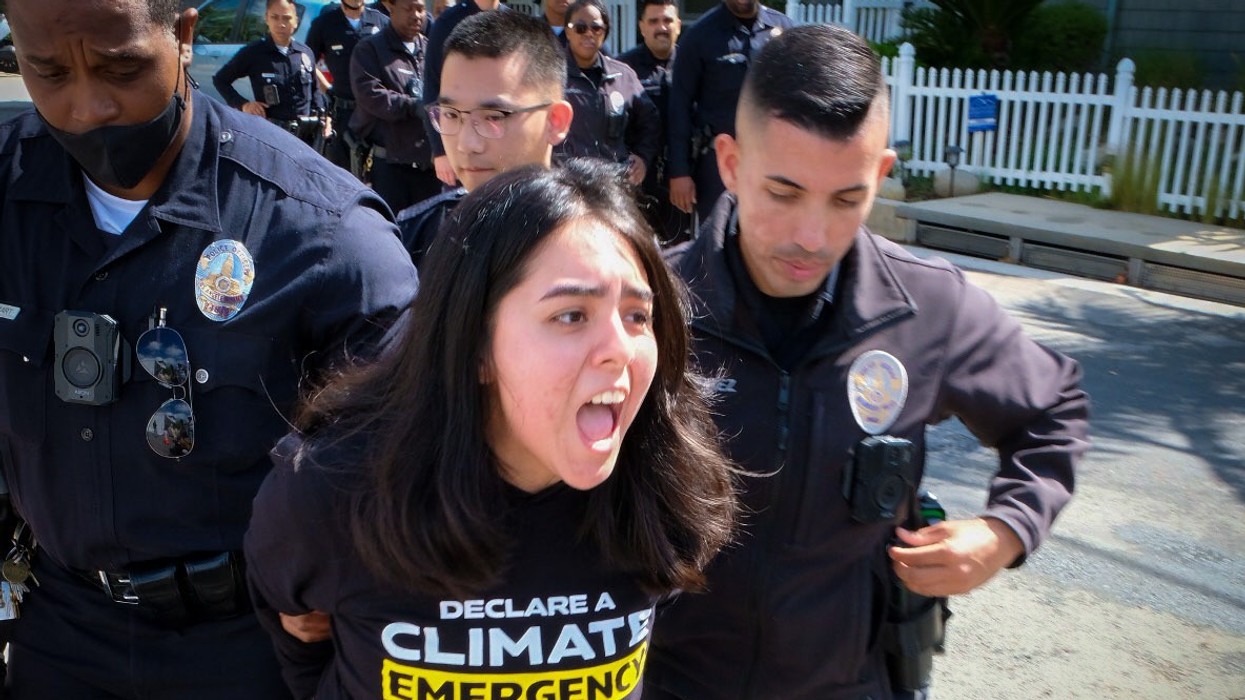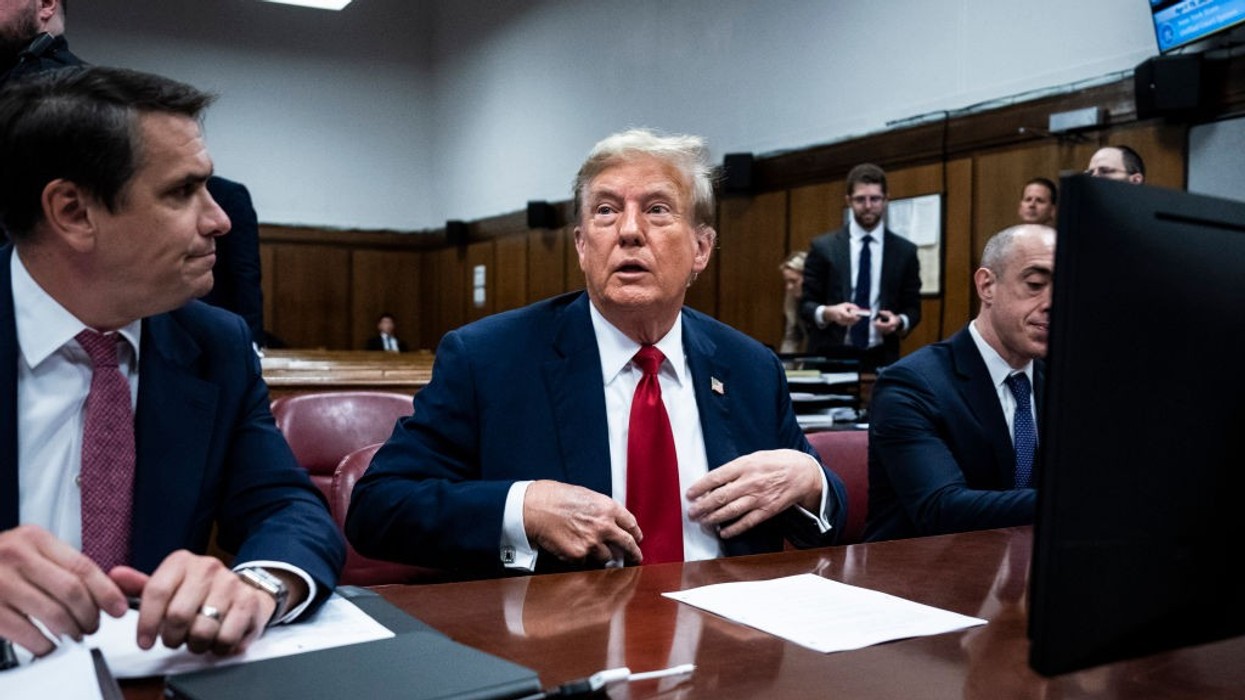August, 10 2012, 10:06am EDT

For Immediate Release
Contact:
Tel: +44 (0) 20 7413 5566,After hours: +44 7778 472 126,Email:,press@amnesty.org
Bahrain Must Free Prisoners of Conscience after 'Travesty of Justice'
The Bahraini authorities must release 13 opposition activists and prisoners of conscience Amnesty International said today, ahead of next week's expected final verdict on their appeals.
The 13, who include prominent activist Abdulhadi Al-Khawaja, were originally sentenced by military court in June 2011 to between two years and life in prison on charges including "setting up terror groups to topple the royal regime and change the constitution".
All of the men maintain their innocence.
WASHINGTON
The Bahraini authorities must release 13 opposition activists and prisoners of conscience Amnesty International said today, ahead of next week's expected final verdict on their appeals.
The 13, who include prominent activist Abdulhadi Al-Khawaja, were originally sentenced by military court in June 2011 to between two years and life in prison on charges including "setting up terror groups to topple the royal regime and change the constitution".
All of the men maintain their innocence.
Several of the defendants have spoken out in previous court hearings to describe their alleged torture and other ill-treatment in detention, including sexual assault, to coerce "confessions".
"The Bahraini authorities must end this travesty of justice, quash all 13 opposition activists' convictions and release them immediately and unconditionally. They are prisoners of conscience, held solely for peacefully exercising their rights to freedom of expression, association and assembly," said Hassiba Hadj Sahraoui, Amnesty International's Middle East and North Africa programme Deputy Director.
"This trial serves as a test for the Bahraini authorities' to show commitment to reform, which they promised to much fanfare after the Bahrain Independent Commission of Inquiry report was launched."
Amnesty International also calls on the authorities to order an immediate and independent investigation into some of the defendants' allegations of torture, make public the findings of such investigations and bring anyone found responsible for abuses to justice.
Due on 14 August, the verdict relates to appeal hearings after the Court of Cassation decided in April 2012 to refer the case to a civilian court. The High Criminal Court of Appeal started hearing the case on 22 May 2012.
Fourteen opposition activists were arrested between 17 March and 9 April 2011 after taking part in pro-reform protests in Manama. One of the men has since been released.
Many have alleged they were tortured during their first few days of detention when they were being interrogated by officers from the National Security Agency (NSA).
None of the 14 was allowed to see their lawyers during the NSA interrogations. Some saw their lawyers during questioning by the military prosecutor ahead of the trial.
Others were only allowed to see their lawyers during the first court hearing in May 2011, which was the first time any of the activists had seen their families since their arrest.
On 22 June 2011, Bahrain's National Safety Court, a military court, announced its verdict and sentenced them to between two years and life in prison on charges including "setting up terror groups to topple the royal regime and change the constitution".
An Amnesty International observer present at one of the appeal sessions, on 6 September 2011 concluded that no evidence was presented in court proving that the 14 had committed a crime and used or advocated violence.
On 28 September 2011 in a session that lasted only a few minutes, a military appeal court upheld all the opposition activists' convictions.
The men's appeal before a civilian court began in May this year, a decision of the Court of Cassation.
Amnesty International continues to call for the immediate and unconditional release of all prisoners of conscience in Bahrain, and urges the Bahraini authorities to carry out an independent investigation into all allegations of torture in detention and to bring those responsible to justice in fair trials.
Background
The 14 opposition activists arrested are: Hassan Mshaima', 'Abdelwahab Hussain, 'Abdulhadi Al-Khawaja, Dr 'Abdel-Jalil al-Singace, Mohammad Habib al-Miqdad, Abdel-Jalil al-Miqdad, Sa'eed Mirza al-Nuri, Mohammad Hassan Jawwad, Mohammad 'Ali Ridha Isma'il, Abdullah al-Mahroos, 'Abdul-Hadi 'Abdullah Hassan al-Mukhodher, Ebrahim Sharif, Salah 'Abdullah Hubail al-Khawaja.
Al-Hur Yousef al-Somaikh has since been released as he had served his sentence after the Court of Cassation reduced it to six months in prison.
Other opposition activists currently held in Bahrain include:
Nabeel Rajab, the President of the Bahrain Centre for Human Rights and Director of the Gulf Centre for Human Rights is serving a three-month prison sentence over a libel case in relation to one of his tweets. After several postponements an appeals court is due to give its verdict on his case on 12 August.
Mahdi 'Issa Mahdi Abu Dheeb, the former president of the Bahrain Teacher's Association (BTA), is serving a ten-year prison term for using his position "to call for a strike by teachers, halting the educational process and inciting hatred of the regime", among other charges. His appeal is ongoing.
Nine health professionals are awaiting their final appeal verdict which is set for 1 October. In June 2012, an appeal court had upheld the convictions against the nine for their role in demonstrations in February and March 2011, but reduced their sentences from between five and 15 years' imprisonment to between one month and five years in prison.
Amnesty International is a worldwide movement of people who campaign for internationally recognized human rights for all. Our supporters are outraged by human rights abuses but inspired by hope for a better world - so we work to improve human rights through campaigning and international solidarity. We have more than 2.2 million members and subscribers in more than 150 countries and regions and we coordinate this support to act for justice on a wide range of issues.
LATEST NEWS
Green Group Slams EPA Failure to Curb 'Dangerous Levels of Air Pollution'
"Air pollution standards must protect endangered plants and wildlife, but the agency failed to follow the law, or the science, to fully address this toxic air pollution's harms to the environment," said one attorney.
Apr 15, 2024
The Center for Biological Diversity on Monday lamented what it called the Biden administration's failure to improve "outdated" limits on nitrogen and soot air pollution.
The U.S. Environmental Protection Agency (EPA) proposed keeping existing secondary national ambient air quality standards for sulfur and nitrogen oxides after estimating that new benchmarks previously put forth would result in reduced pollution from sources including coal-fired power plants.
However, Center for Biological Diversity (CBD) staff attorney Ryan Maher argued that "the EPA failed to seize this important opportunity to better protect plants and animals from these toxic pollutants."
"Since the EPA's last review of these pollution standards, the science showing the ecological harm from soot, sulfur, and nitrogen air pollution has become more certain."
"Since the EPA's last review of these pollution standards, the science showing the ecological harm from soot, sulfur, and nitrogen air pollution has become more certain," Maher added. "Rather than aligning its standards with this new research, the EPA has chosen to perpetuate dangerous levels of air pollution."
The Clean Air Act requires the EPA to set primary, or health-based, and secondary, or welfare-based, "national ambient air quality standards" for pollutants including sulfur oxides, nitrogen oxides, and particulate matter—better known as soot. However, the EPA has failed to update the secondary standards for nitrogen and sulfur air pollution for more than half a century. Key portions of the EPA's secondary soot standards also haven't been updated in decades.
According to the CBD:
The agency published today's proposal under an agreement that resulted from a 2022 lawsuit brought by the Center for Biological Diversity and the Center for Environmental Health. That agreement requires the agency to finalize its decision on the air quality standards no later than December 10, 2024.
The agency will hold a virtual public hearing on the proposed rule on May 8.
Critics have also called out the EPA for not completing a mandatory Endangered Species Act consultation with the U.S. Fish and Wildlife Service and National Marine Fisheries Services about how pollution levels allowed under the proposed standards could harm endangered plants and animals.
"Air pollution standards must protect endangered plants and wildlife, but the agency failed to follow the law, or the science, to fully address this toxic air pollution's harms to the environment," Maher noted.
Separately, green groups including Earthjustice, Sierra Club, California Communities Against Toxins, and Southwestern Environmental Law Center on Monday welcomed the EPA's decision to deny an industry petition to delist energy turbines as a major source of air pollution.
"Today's decision upholds critical environmental protections that are essential for safeguarding public health, particularly in communities that have historically borne the brunt of industrial pollution," Earthjustice director of federal clean air practice James Pew said in a statement.
"Keeping pollution control requirements in place is not just a matter of regulatory compliance; it's a fundamental environmental justice issue," Pew added. "EPA did the right thing by rejecting industry's attempt to dodge these requirements and get a free pass to pollute."
Keep ReadingShow Less
Sunrise Protesters Arrested at VP's House Demanding Biden Declare a Climate Emergency
"We deserve an administration who will fight for us, but instead of declaring a climate emergency, we are seeing Biden and Harris expand oil and gas production to record levels."
Apr 15, 2024
Six young activists were arrested outside Vice President Kamala Harris' Los Angeles home on Monday while calling on the White House to declare a climate emergency, according to the youth-led Sunrise Movement.
Harris and President Joe Biden–Democrats who are seeking reelection in November—campaigned as climate champions in the 2020 cycle but have had a mixed record on the topic since entering office.
"My generation is spending our teenage years organizing for climate action because people like Kamala Harris have failed us," said Adah Crandall, one of the activists arrested after blockading the street outside her California residence overnight.
"We're ready to do whatever it takes to win a climate emergency declaration—we will camp out overnight, we will get arrested, we will mobilize our peers by the thousands to win the world we deserve," the 18-year-old continued. "The Biden administration are cowards for not standing with young people."
"The Biden administration are cowards for not standing with young people."
The White House has been praised for climate provisions in the Inflation Reduction Act as well was a recent pause on liquefied natural gas exports. However, the president has also faced criticism for continuing fossil fuel lease sales, backing the Mountain Valley Pipeline and Willow oil project, and skipping last year's United Nations summit.
Just last week, the Biden administration approved a license for a pipeline company to build the nation's largest offshore oil terminal off of Texas' Gulf Coast—despite surging fossil fuel pollution that is pushing up global temperatures.
Sunrise last week condemned the approval as "very disappointing" and also joined with Campus Climate Network and Fridays for Future USA to announce Earth Day demonstrations intended to pressure Biden to declare a climate emergency.
Biden
claimed last year that "practically speaking," he had already declared a national climate emergency; however, as campaigners and experts have stressed, actually doing so would unlock various federal powers to tackle the fossil fuel-driving crisis.
"Our communities in California breathe toxic air from fossil fuels and face fires that destroy our homes," noted 18-year-old Ariela Lara, who was arrested at Harris' home.
"I'm on the frontlines raising my voice for my Black and Latine families and friends," Lara added, "because I know that we deserve to have affordable housing and healthcare, we deserve an administration who will fight for us, but instead of declaring a climate emergency, we are seeing Biden and Harris expand oil and gas production to record levels."
The action targeting Harris came after a February protest at Biden's campaign headquarters in Delaware that also led to arrests.
Keep ReadingShow Less
Democracy Defenders Stress NY Trump Trial 'Is About Voter Deception'
"Trump engaged in criminal acts to cover up the truth just days before the 2016 election, and now he will finally face a jury of everyday Americans."
Apr 15, 2024
As former U.S. President Donald Trump's first of four potential criminal trials began in New York on Monday, progressive groups emphasized that what is often called a hush money case involving a porn star "is about voter deception."
Trump, the presumptive Republican candidate to face Democratic President Joe Biden in November, faces 91 felony charges across the four cases. For this one, he was indicted by a New York grand jury last spring with 34 counts of falsifying business records related to alleged hush money payments to cover up sex scandals during the 2016 election cycle.
The payments were made by Michael Cohen, Trump's former fixer, to porn star Stormy Daniels, and by the tabloid The National Enquirer to Karen McDougal, a former Playboy model. The twice-impeached ex-president has pleaded not guilty.
"This case is about the allegation that Trump criminally hid information from voters to influence the outcome of the 2016 election," said Lisa Gilbert, executive vice president of the watchdog group Public Citizen, in a statement Monday.
"You can draw a clear pattern from this election interference behavior to his more emboldened efforts to subvert the 2020 election, which led to the January 6th insurrection, a lasting stain on American democracy," she added, referring to the 2021 U.S. Capitol attack that some critics argue makes him constitutionally ineligible to hold office again. "Accountability for criminal deception of voters is absolutely necessary to ensure future candidates and public officials know they can't get away with this sort of conduct."
Gilbert stressed that "despite what Donald Trump and his allies may claim, no one is above the law—including a former president charged with serious crimes, and today marks the start of the legal system's chance to prove this point."
Stand Up America president and founder Sean Eldridge similarly celebrated that "Donald Trump will finally face accountability for falsifying his company's business records in order to conceal damning information from voters ahead of the 2016 election."
"Concealing secret payments and then lying in official filings to cover it up is a serious crime, which is why Trump has been charged with 34 felony counts," Eldridge said. "This case is a clear example of Trump's pattern of engaging in criminal behavior to cling to power and hide the truth from the American people. No one is above the law in the United States of America, including former presidents."
"A functioning democracy depends on voters having the information they need to pick their leaders," he continued. "Trump engaged in criminal acts to cover up the truth just days before the 2016 election, and now he will finally face a jury of everyday Americans."
This is the first criminal trial of a former American president. Monday featured a series of rulings from Judge Juan Merchan—who has rejected Trump's demands that he step away from the case—and the beginning of jury selection.
The New York Timesreported that "the initial pool of prospective jurors dwindled rapidly. More than half of the first group of 96 were dismissed in short order after indicating that they did not believe they could be impartial. Court adjourned for the day roughly two hours after jury selection began, with zero jurors chosen."
In addition to the case in New York, Trump faces two federal cases—overseen by Special Counsel Jack Smith because of Trump's 2024 campaign. One is about his mishandling of classified material and the other stems from his attempt to reverse the 2020 election results. The Republican also faces a Georgia case for interfering with the last presidential contest.
It is not clear whether any of the other three cases will go to trial before the November election. Trump is trying to claim presidential immunity to get the federal election charges dismissed and the U.S. Supreme Court—to which he appointed three justices—is set to hear arguments in that case on April 25.
Public Citizen is among the groups that last week submitted briefs to the high court criticizing Trump's claims. The watchdog's president, Robert Weissman, said that "Trump's legal theory defies common sense and would enable an almost limitless tyranny. Nothing in the Constitution—which aims to prevent tyranny—supports Trump's theory."
Keep ReadingShow Less
Most Popular


